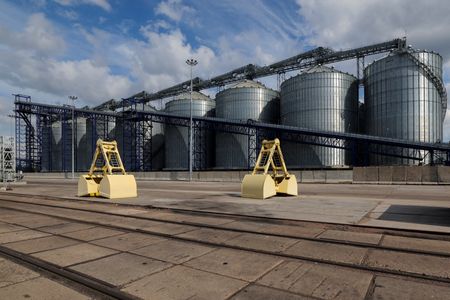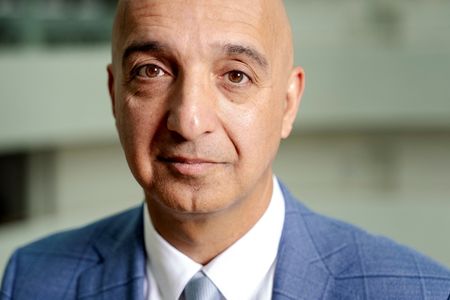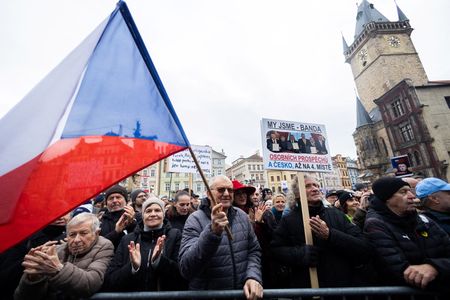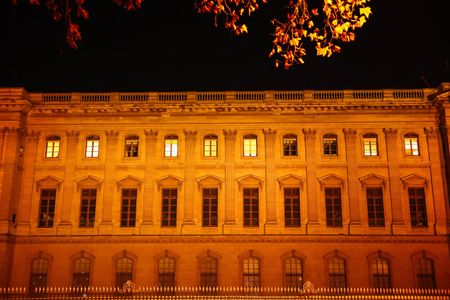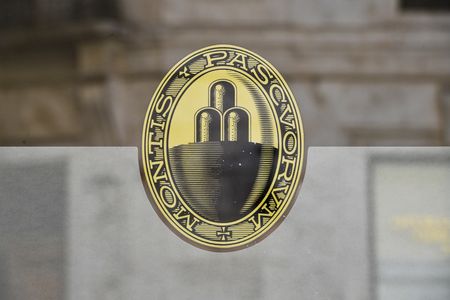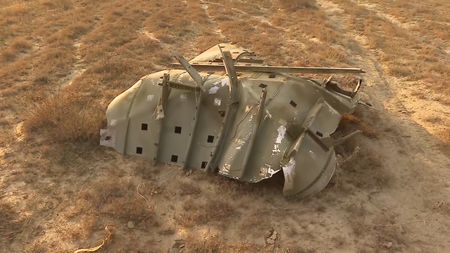By Anastasia Lyrchikova, Olga Popova, Gleb Stolyarov and Darya Korsunskaya
MOSCOW (Reuters) – Russia is quickening the pace of domestic asset seizures this year after courts ruled last week that a leading grain trader, Moscow’s sprawling Domodedovo airport and strategic warehouse assets be handed over to the state.
Foreign companies have grappled with the risk of state seizure ever since Russia sent troops into Ukraine in February 2022, but Moscow, under the auspices of strategic stability and domestic security, has increasingly brought domestic assets too into the crosshairs.
Grains trading house Rodnie Polya, Moscow’s Domodedovo Airport and all 16 warehouses belonging to Russia’s largest warehouse owner Raven Russia were all placed under state management on January 31, court documents showed and sources said.
The General Prosecutor’s office did not respond to Reuters requests for comment on the cases.
Lawyers Reuters spoke to said the number of cases filed on the grounds of foreign ownership would likely increase in strategic sectors of the economy, and agreed that the rules of the game were changing for any businesses with non-Russian links.
“This is a signal to owners with dual citizenship, especially from unfriendly countries,” Artem Zhavoronkov, a partner at Russian law firm Nordic Star, told Reuters. “Either renounce your foreign citizenship or lose your business in Russia.”
The Kremlin typically refers to countries that have imposed sanctions on Russia over its actions in Ukraine as “unfriendly”.
Rodnie Polya controlled 14% of Russia’s grain exports just a year ago, but has steadily had its market share squeezed.
Owner Petr Khodykin this week surrendered his St Kitts and Nevis passport and a residency permit for the United Arab Emirates in a last-ditch attempt to cling on to his business, a source close to the company told Reuters.
The move may not have worked. Rodnie Polya’s assets were handed to Rosimushchestvo, Russia’s federal property management agency, on February 5, Russian tax filings show.
Rodnie Polya said its lawyers were considering various methods of defence, including appealing to the constitutional court.
“Petr Khodykin is looking for a fair trial for a Russian citizen and is trying to draw the authorities’ attention to the fact that his story is completely different from cases when the General Prosecutor is indeed defending the interests of the state and its security,” Rodnie Polya said.
WIDESPREAD ASSET SEIZURE
More than 1 trillion roubles’ ($10.34 billion) worth of strategic enterprises and assets, seen as critical for developing Russia’s economy and defence capabilities, were transferred to state ownership by Russian courts in 2023, Prosecutor General Igor Krasnov said in March 2024.
While several foreign-owned assets, such as those of Danone and Carlsberg were seized by presidential decree before deals to hand-picked buyers were forced through, the General Prosecutor has used the courts.
Last April, Russian President Vladimir Putin said assets would only be seized when Russia’s national security was a stake.
But authorities have been constantly improvising in terms of asset seizure, a person whose business was taken over by the state told Reuters.
When people see that a method is working it quickly starts being employed more widely, the person said, with government agencies keen to show off their success in bringing assets into the state’s portfolio.
Any company with assets of strategic importance to Russia or that fails to invest in its businesses in the country could be at risk, according to a presentation, seen by Reuters, prepared by a law firm to advise clients.
Prosecutors on February 5 filed a similar case against oil services company Borets, court filings showed. Borets’ ultimate holding company is a UAE entity, corporate filings show.
Borets did not immediately respond to a request for comment.
‘NEW RULES OF THE GAME’
A Russian agriculture source brushed aside concerns, seeing the seizure of Rodnie Polya as an isolated case that would not pose a wider threat to other agricultural firms.
Boris Brusko, managing partner at law firm I. Helory, said the Rodnie Polya case showed the state was seeking to increase control over the corporate activity of assets it deemed strategic.
“This is the state’s establishment of new rules of the game in the current political situation for protecting its strategic interests,” Brusko told Reuters.
Another agricultural source said the speed with which the court moved was surprising, with lawyers given barely any time to get acquainted with all the case files.
The speed of the decisions came as an unpleasant surprise, said Yevgeny Nadorshin, an economist at PF Capital, suggesting that fiscal pressure could be behind the urgency, as a slowdown in economic growth and new U.S. sanctions could hurt Russia’s revenues.
The principle of loyalty also could not be ignored, Nadorshin said, as “the wrong passport is the basis of suspicion of unfriendly foreign influence.
“Judging from the start of the year, (this process) seems to have intensified,” Nadorshin said. “I have an uncomfortable feeling this is not the finale.”
($1 = 96.7455 roubles)
(Reporting by Gleb Stolyarov in Tbilisi, Olga Popova, Anastasia Lyrchikova and Elena Fabrichnaya in Moscow and Darya Korsunskaya and Alexander Marrow in London; Writing by Alexander Marrow; Editing by Alex Richardson)

